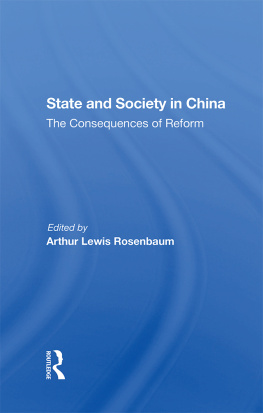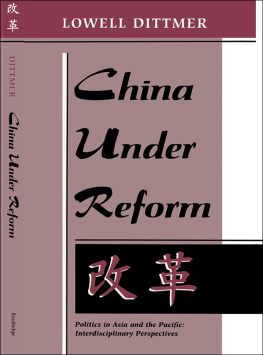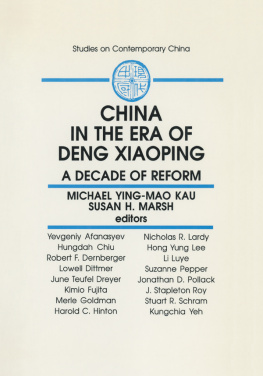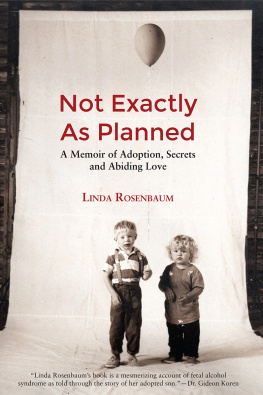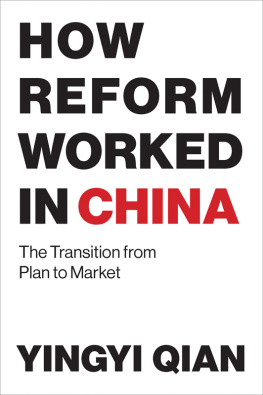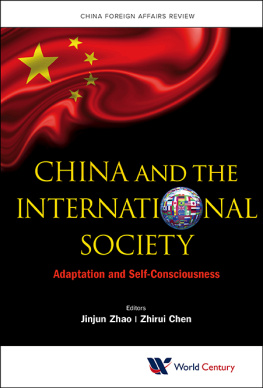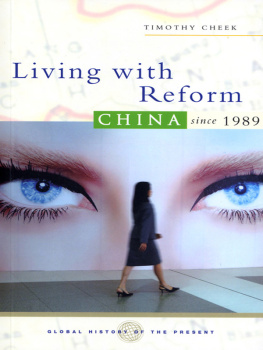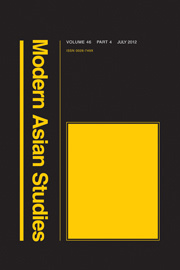First published 1992 by Westview Press, Inc.
Published 2019 by Routledge
52 Vanderbilt Avenue, New York, NY 10017
2 Park Square, Milton Park, Abingdon, Oxon OX14 4RN
Routledge is an imprint of the Taylor & Francis Group, an informa business
Copyright 1992 Taylor & Francis
All rights reserved. No part of this book may be reprinted or reproduced or utilised in any form or by any electronic, mechanical, or other means, now known or hereafter invented, including photocopying and recording, or in any information storage or retrieval system, without permission in writing from the publishers.
Notice:
Product or corporate names may be trademarks or registered trademarks, and are used only for identification and explanation without intent to infringe.
Library of Congress Cataloging-in-Publication Data
State and society in China: the consequences of reform / edited by
Arthur Lewis Rosenbaum.
p. cm.
Includes bibliographical references and index.
ISBN 0-8133-1175-6. ISBN 0-8133-1176-4 (pbk.)
1. ChinaPolitics and government1976- . 2. ChinaSocial
conditions1976- . I. Rosenbaum, Arthur Lewis, 1939- .
DS779.26.S74 1992
951.05dc20 91-39419
CIP
ISBN 13: 978-0-367-28866-2 (hbk)
I would like to express my gratitude to the eight contributors to this volume. I also wish to express great appreciation to the Keck Center and to Larry David for their generous financial backing of this project. Chae-Jin Lee, director of the Keck Center, provided indispensable counsel and support throughout the entire endeavor. Mary Anderson graciously assumed administrative responsibility for keeping the project on track, especially when I was in China as a Fulbright lecturer.
I wish to thank many unnamed Chinese friends and colleagues for freely sharing their experiences and views. Diana and William Tilling hast deserve special recognition for their thoughtful comments on the various drafts of my essay. Norman Bock constantly challenged my arguments. Faye Rosenbaum was a critical reader of everything I wrote, always demanding that I maintain the standards I exact of her. My wife, Chiao-ling Rosenbaum, was a continual source of intellectual inspiration and a most perceptive observer of the Chinese scene.
Additional thanks go to the editorial staff of Westview Press: to acquisitions editor Susan McEachern and the anonymous readers of the manuscript for identifying major areas of weakness, and to Alice Colwell for her careful editing.
This book is dedicated to Frank Rosenbaum and Joyce Rosenbaum, whose insistence on intellectual rigor and c1arity of thought inspired all their children.
Arthur Lewis Rosenbaum
1
Introduction
Arthur Lewis Rosenbaum
On the night of June 3-4, 1989, columns of tanks and armed soldiers rolled down Changan Boulevard in Beijing and applied merciless force to clear the streets of antigovernment demonstrators, shattering the evanescent hopes of millions who had believed that the "will of the people" would triumph. It has been more than two years since clanking tank treads sounded an end to short-lived Chinese feelings of hope, liberation, and solidarity. The physical scars of that night are now gone, concealed beneath the paint and refurbishment that accompanied the preparations for the 1990 Asian Games in Beijing. The psychological and political consequences, however, have not been dispelled. The massacre in Tiananmen Square changed everything in China, and yet it changed nothing.
The violent repression of the protesters, subsequent purge of leading reformers, and stilling of all forms of open dissent transformed the mood in Beijing without altering the underlying situation that created the crisis. An embittered population glumly observes the government's machinations, aware that public opinion does not influence decision-making. Even minor issues, which local leaders in a school or factory used to decide, are now deferred to higher levels. A bleakness of spirit immediately attracts the attention of visitors to Beijing.
Obsessed with "unity and stability," the party-state has blocked expression of popular opinion, subsidized failing state enterprises to prevent further unemployment, and limited growth to control inflation. Yet even as conservative-oriented planners talk of retrenchment and recentralizing parts of the economy, the South China coast experiences astounding rates of growth as it continues to privatize commerce. The National People's Congress, held in late March through early April 1991, displayed the same schizophrenic tendency, balancing talk of "open doors" and "reform" against rhetoric emphasizing the superiority of planning and stability.
U.S. distaste for the massacre of June 3-4 and for subsequent human rights violations is so great as to warp our perspective. By any objective standard, the massacre at Tiananmen and the current level of repression scarcely approach what many Chinese endured during the antirightist campaigns of the 1950s and the decade of the Cultural Revolution (1966-1976). The current economic compromises, which leave China awkwardly caught between a planned economy and a market economy, confound sound Western economic theory. But despite chronic government deficits, there is growth, and stores are filled with goodssome of which people actually wish to buy. If some aspects of Chinese polity and society are frozen or have regressed, others continue to evolve along pre-Tiananmen lines.
The conservative backlash cannot undo a decade of reform, nor can it completely change China's agenda. Every Chinese government since the 1880s has sought national wealth and power, both to enhance China's international position and to improve living conditions at home. Because in today's world such a quest requires access to foreign countries (capital, trade, and technology) and a domestic infrastructure that supports modernization, the search for wealth and power constrains conservative options. As long as Chinese conservatives acknowledge the importance of modernization, they cannot resolve the contradiction between party control and modern economic growth. Furthermore, the erosion of party authority undermines the political and social mechanisms used to enforce official policies. Authorities can restrain "deviant" behavior, but they can no longer compel people to believe or cooperate.
Even within the upper political echelons, the hard-liners' victory is incomplete. June 1989 effectively removed radical reformers from sensitive positions of influence at the top, but intra-elite divisions between "moderate" and "conservative" reformers continue. Disagreements between Deng Xiaoping and Chen Yun over economic reform caused a four-month delay in holding the Seventh Plenum in December 1990. They also forced a compromise on the Eighth Five-Year Plan, which offers no clear direction for the future.
China has entered a deathwatch similar to that of the last years under Mao Zedong. Since 1956 every individual groomed as the future leader of ChinaLiu Shaoqi, Lin Biao, Deng Xiaoping, Hua Guofeng, Hu Yaobang, and Zhao Ziyanghas been purged from office. Deng Xiaoping recovered his footing, but not before being twice purged. The impending deaths of the entire senior leadership of octogenarians will force the current "chosen successors," Li Peng and Jiang Zemin, to operate without their patrons. It will also bring to power a new generation of leaders whose political orientations are still unclear. The actors and political dynamics of a post-Deng era may be different, but the underlying problems and choices will remain.


